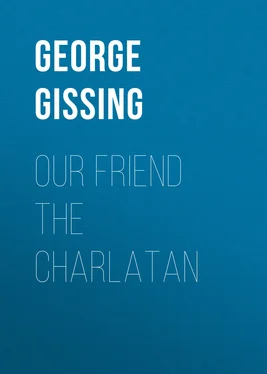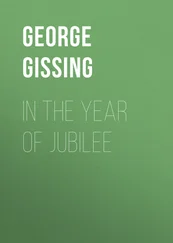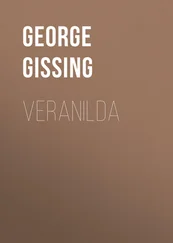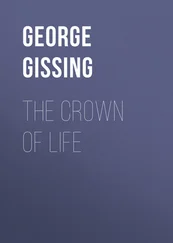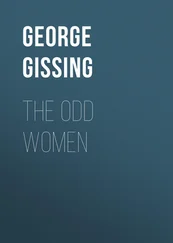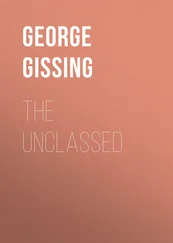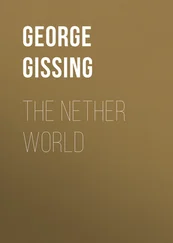George Gissing - Our Friend the Charlatan
Здесь есть возможность читать онлайн «George Gissing - Our Friend the Charlatan» — ознакомительный отрывок электронной книги совершенно бесплатно, а после прочтения отрывка купить полную версию. В некоторых случаях можно слушать аудио, скачать через торрент в формате fb2 и присутствует краткое содержание. Жанр: foreign_prose, literature_19, foreign_antique, на английском языке. Описание произведения, (предисловие) а так же отзывы посетителей доступны на портале библиотеки ЛибКат.
- Название:Our Friend the Charlatan
- Автор:
- Жанр:
- Год:неизвестен
- ISBN:нет данных
- Рейтинг книги:4 / 5. Голосов: 1
-
Избранное:Добавить в избранное
- Отзывы:
-
Ваша оценка:
- 80
- 1
- 2
- 3
- 4
- 5
Our Friend the Charlatan: краткое содержание, описание и аннотация
Предлагаем к чтению аннотацию, описание, краткое содержание или предисловие (зависит от того, что написал сам автор книги «Our Friend the Charlatan»). Если вы не нашли необходимую информацию о книге — напишите в комментариях, мы постараемся отыскать её.
Our Friend the Charlatan — читать онлайн ознакомительный отрывок
Ниже представлен текст книги, разбитый по страницам. Система сохранения места последней прочитанной страницы, позволяет с удобством читать онлайн бесплатно книгу «Our Friend the Charlatan», без необходимости каждый раз заново искать на чём Вы остановились. Поставьте закладку, и сможете в любой момент перейти на страницу, на которой закончили чтение.
Интервал:
Закладка:
Dyce asked himself how much of this vehemence was genuine, how much assumed to gratify their hostess. Was Mr. Breakspeare inwardly laughing at himself and the company? But he seemed to be an excitable little man, and possibly believed what he said.
"That's very interesting," Dyce remarked. "And how much longer will Hollingford be content with such representation?"
"I think," replied Breakspeare, gravely, "I really think, that at the next election we shall floor him. It is the hope of my life. For that I toil; for that I sacrifice leisure and tranquillity and most of the things dear to a man philosophically inclined. Can I but see Robb cast down, I shall withdraw from the arena and hum (I have no voice) my Nunc dimittis ."
Was there a twinkle in the editor's eye as it met Lashmar's smile? Constance was watching him with unnaturally staid countenance, and her glance ran round the table.
"I'm only afraid," said Lady Ogram, "that he won't stand again."
"I think he will," cried Breakspeare, "I think he will. The ludicrous creature imagines that Westminster couldn't go on without him. He hopes to die of the exhaustion of going into the lobby, and remain for ever a symbol of thick-headed patriotism. But we will floor him in his native market-place. We will drub him at the ballot. Something assures me that, for a reward of my life's labours, I shall behold the squashing of Robb!"
Lady Ogram did not laugh. Her sense of humour was not very keen, and the present subject excited her most acrimonious feelings.
"We must get hold of the right man," she exclaimed, with a glance at Lashmar.
"Yes, the right man," said Breakspeare, turning his eyes in the same direction. "The man of brains, and of vigour; the man who can inspire enthusiasm; the man, in short, who has something to say, and knows how to say it. In spite of the discouraging aspect of things, I believe that Hollingford is ready for him. We leading Liberals are few in number, but we have energy and the law of progress on our side."
Lashmar had seemed to be musing whilst he savoured a slice of pine-apple. At Breakspeare's last remark, he looked up and said:
"The world moves, and always has moved, at the impulse of a very small minority."
"Philosophically, I am convinced of that," replied the editor, as though he meant to guard himself against too literal or practical an application of the theorem.
"The task of our time," pursued Dyce, with a half absent air, "is to make this not only understood by, but acceptable to, the multitude. Political education is our pressing need, and political education means teaching the People how to select its Rulers. For my own part, I have rather more hope of a constituency such as Hollingford, than of one actively democratic. The fatal thing is for an electorate to be bent on choosing the man as near as possible like unto themselves. That is the false idea of representation. Progress does not mean guidance by one of the multitude, but by one of nature's elect, and the multitude must learn how to recognise such a man."
He looked at Lady Ogram, smiling placidly.
"There's rather a Tory sound about that," said the hostess, with a nod, "but Mr. Breakspeare will understand."
"To be sure, to be sure!" exclaimed the editor. "It is the aristocratic principle rightly understood."
"It is the principle of nature," said Lashmar, "as revealed to us by science. Science—as Mr. Breakspeare is well aware—teaches, not levelling, but hierarchy. The principle has always been dimly perceived. In our time, biology enables us to work it out with scientific precision."
Mr. Breakspeare betrayed a little uneasiness.
"I regret," he said diffidently, "that I have had very little time to give to natural science. When we have floored Robb, I fully intend to apply myself to a study of all that kind of thing."
Lashmar bestowed a gracious smile upon him.
"My dear sir, the flooring of Robb—Robb in his symbolic sense—can only be brought about by assiduous study and assimilation of what I will call bio-sociology. Not only must we, the leaders, have thoroughly grasped this science, but we must find a way of teaching it to the least intelligent of our fellow citizens. The task is no trifling one. I'm very much afraid that neither you nor I will live to see it completed."
"Pray don't discourage us," put in Constance. "Comprehensive theories are all very well, but Mr. Breakspeare's practical energy is quite as good a thing."
The editor turned his eyes upon Miss Bride, their expression a respectful gratitude. He was a married man, with abundant offspring. Mrs. Breakspeare rose every morning at half-past six, and toiled at her domestic duties, year in year out, till ten o'clock at night; she was patient as laborious, and had never repined under her lot. But her education was elementary; she knew nothing of political theories, nothing of science or literature, and, as he looked at Constance Bride, Breakspeare asked himself what he might not have done, what ambition he might not have achieved, had it been his fate to wed such a woman as that ! Miss Bride was his ideal. He came to Rivenoak less often than he wished, because the sight of her perturbed his soul and darkened him with discontent.
"Discourage you!" cried Lashmar. "Heaven forbid! I'm quite sure Mr. Breakspeare wouldn't take my words in that sense. I am all for zeal and hopefulness. The curse of our age is pessimism, a result and a cause of the materialistic spirit. Science, which really involves an infinite hope, has been misinterpreted by Socialists in the most foolish way, until we get a miserable languid fatalism, leading to decadence and despair. The essential of progress is Faith, and Faith can only be established by the study of Nature."
"That's the kind of thing I like to hear," exclaimed the editor, who, whilst listening, has tossed off a glass of wine. (The pink of his cheeks was deepening to a pleasant rosiness, as luncheon drew to its end.) " Hoc signo vinces !"
Lady Ogram, who was regarding Lashmar, said abruptly, "Go on! Talk away!" And the orator, to whose memory happily occurred a passage of his French sociologist, proceeded meditatively.
"Two great revolutions in knowledge have affected the modern world. First came the great astronomic discoveries, which subordinated our planet, assigned it its place in the universe, made it a little rolling globe amid innumerable others, instead of the one inhabited world for whose behalf were created sun and moon and stars. Then the great work of the biologists, which put man into his rank among animals, dethroning him from a fantastic dignity, but at the same time honouring him as the crown of nature's system, the latest product of aeons of evolution. These conquests of science have put modern man into an entirely new position, have radically changed his conception of the world and of himself. Religion, philosophy, morals, politics, all are revolutionised by this accession of knowledge. It is no exaggeration to say that the telescope and the microscope have given man a new heart and soul. But —" he paused, effectively,—"how many are as yet really aware of the change? The multitude takes no account of it, no conscious account; the average man lives under the heaven of Joshua, on the earth of King Solomon. We call our age scientific. So it is—for a few score human beings."
Reflecting for a moment, Dyce felt that it would be absurd to charge him with plagiarism, so vastly more eloquent was he than the author to whom he owed his ideas. Conscience did not trouble him in the least. He marked with satisfaction the attentiveness of his audience.
"Politics, to be a living thing, must be viewed in this new, large light. The leader in Liberalism is the man imbued with scientific truth, and capable of applying it to the every day details of government. Science, I said, teaches hierarchic order—that is, the rule of the few, of the select, the divinely appointed. But this hierarchy is an open order—open to the select of every rank; a process of perpetual renewal will maintain the health of the political organism. The true polity is only in slow formation; for, obviously, human reason is not yet a complete development. As yet, men come to the front by accident; some day they will be advanced to power by an inevitable and impeccable process of natural selection. For my own part"—he turned slightly towards the hostess—"I think that use will be made of our existing system of aristocracy; in not a few instances, technical aristocracy is justified by natural pre-eminence. We can all think of examples. Personally, I might mention my friend Lord Dymchurch—a member of the true aristocracy, in every sense of the word."
Читать дальшеИнтервал:
Закладка:
Похожие книги на «Our Friend the Charlatan»
Представляем Вашему вниманию похожие книги на «Our Friend the Charlatan» списком для выбора. Мы отобрали схожую по названию и смыслу литературу в надежде предоставить читателям больше вариантов отыскать новые, интересные, ещё непрочитанные произведения.
Обсуждение, отзывы о книге «Our Friend the Charlatan» и просто собственные мнения читателей. Оставьте ваши комментарии, напишите, что Вы думаете о произведении, его смысле или главных героях. Укажите что конкретно понравилось, а что нет, и почему Вы так считаете.
